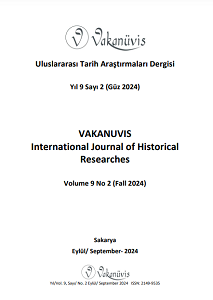Phrygia Epiktetos’ta Ölüm
Death in Phrygia Epictetus
Author(s): Ahmet TürkanSubject(s): Cultural history, Customs / Folklore, Regional Geography, Social history, Cultural Anthropology / Ethnology
Published by: Serkan YAZICI
Keywords: Phrygia Epictetus; Death; Burial Customs; Necropoleis; Grief;
Summary/Abstract: Phrygia Epiktetos, also referred to "Phrygia Minor" by Strabo and Pausanias, is a region located within the modern borders of Eskişehir and Kütahya. The term "Epiktetos" means "acquired". It was used in the 2nd century BCE to emphasize the political/cultural distinction from other regions of Phrygia under the Pergamon Kingdom's rule following wars between Pergamon and Bithynia. During the last decades of the Pergamon Kingdom and the early Roman domination of Asia Minor, it existed as a political unity and minted its own coins. Its main cities during the Hellenistic and Roman periods were Aizanoi, Kotiaeion, Nakoleia, Dorylaion, and Midaion. This study examines the understanding of death and burial customs of people living in this geography during the mentioned period in the light of archaeological and epigraphic evidence. Findings from necropolis excavations reveal the relationship between the deceased's socio-economic status and burial customs, with the location of the necropolis, tomb architecture, and grave findings showing variety. Epigraphic data indicate that the people living in Phrygia generally associated the concept of death with the fate goddesses Moirai. Sudden deaths from diseases or accidents were attributed to evil spirits or gods. Various rituals were performed to comfort the deceased's spirit and prevent it from haunting the living, with many symbols and protective items used for this purpose. Written documents reflect the mourning process and the emotions experienced by the deceased's close circle. Expressions of pity, anger, and grief are commonly found for young or suddenly deceased individuals. Additionally, emotions of love, longing, honor, and compassion also appeared on tombstones, depending on the deceased's identity.
Journal: Vakanüvis- Uluslararası Tarih Araştırmaları Dergisi
- Issue Year: 9/2024
- Issue No: 2
- Page Range: 1563-1596
- Page Count: 34
- Language: Turkish

